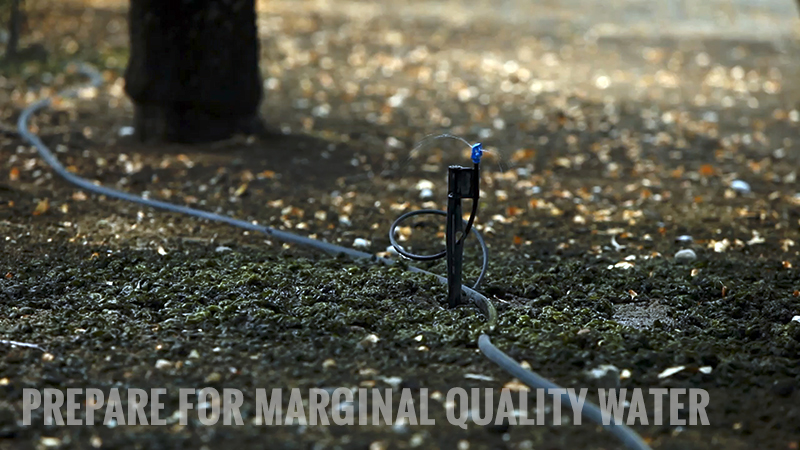Researchers Engineer Specialty Crops
Have you ever been to a strange party where you didn’t know many of the people … in a big city … for two days? That’s how a lot of us felt this past April 24-25 at the National Workshop on Engineering Solutions to Specialty Crop Challenges.
But there we were, nearly 100 of us, in a bland, over air-conditioned high-rise in the hotel ghetto near National Airport in Washington, DC, wondering who to talk to, and about what.
There were producers, processors, and industry organization representatives from all over the country: New Jersey, Virginia, Florida, Michigan, Pennsylvania, California, Oregon, Washington (the real Washington), representing a fantastic diversity of specialty crops: almonds, apples, berries, cherries, citrus, grapes, nursery and landscape, peaches, and wine. In many cases, these were familiar faces.
Another large group of familiar faces were faculty from our land grant universities: Auburn, Cornell, Purdue, Florida, Illinois, Michigan State, Ohio State, Oregon State, Texas A&M, University of California-Davis, and Washington State, along with USDA-Agricultural Research Service (ARS) scientists from locations across the country. We also recognized some of our hosts: research administrators from ARS and USDA-Cooperative State Research, Extension, and Education Service (CSREES).
In fact, over the past few years, a lot of people from these groups have been getting together. Specialty crop producers, processors, and industry organization representatives have been working with our research providers to identify research and Extension needs and develop strategic initiatives to address those needs. With support from Congress, and leadership from the CSREES land grant system and ARS, specialty crop industries are beginning to see a significant, increased research investment across our areas of concern: sustainability, consumer awareness, community development, production, and processing efficiency. And of course, we welcome the increased attention given to specialty crops by USDA, and highlighted in the Administration’s Farm Bill.
But, back to the party, and those strange newcomers with the unexpected name tags, from places like Cal Tech, Carnegie-Mellon, MIT, Olin College, Boeing, Fluid Analytics, John Deere, Littau, Oxbow, and Vision Robotics. What about those three scientists from NASA, and the engineering program leader from the National Science Foundation? The representatives from OSHA and the National Institute of Standards and Technology? Were they lost, and supposed to be at another one of the anonymous hotels for another workshop?
Nope, these folks were the reason the workshop was titled “Engineering Solutions.” Along with the Specialty Crops Research Team, three different government agencies — USDA, the National Security Agency, and the National Science Foundation — sponsored this workshop to bring an exciting new focus and exciting new resources to bear on our industries.
Spirited Discussions
As the party got underway, we enjoyed some presentations by industry representatives on production and processing problems, and some of the research that was underway. We also heard from those engineers about their research, not very much of which had anything to do with agriculture. Then, as the party got more intense, we broke up into groups and shared ideas, opinions, and speculation about the engineering solutions we saw to keep our industries competitive in a global marketplace.
As can happen when the party heats up, discussions became somewhat intense. We argued about precision agriculture, robotics, sensors, diagnostics, workforce, and education. We disputed the notion that perennial specialty crops share similar problems and pointed out how almonds and raisins and cherries and cranberries and mandarins and potted shrubs each have a whole set of unique research and Extension needs (and that each needed a whole lot more funding to get anything done). Somehow, though, each group worked through the contention, and we now have flip chart pages and PowerPoint shows chock full of engineering solutions to specialty crop challenges.
More importantly, I believe we have a sense of another world out there, in which engineers are willing to bring their special knowledge, skills, and insights to specialty crops, and in which our land grant universities and ARS are committed to an even closer collaboration with the specialty crop industries. It continues to be our responsibility, within the diverse specialty crop industries, to help define and develop the research and Extension agenda of the future, seeking common ground so that our limited resources are invested most efficiently.
By the way, that also happens to be the message relayed to us as we broke up, and it was delivered by USDA Undersecretary for Research Education, and Extension, Dr. Gayle Buchanan, who crashed the party to join in on some of the final breakout sessions. Buchanan sent us home with his support for the workshop and encouraged us to continue our effort.
We are already planning the next party, and I hope that many of you plan to attend. I also hope we manage to hold it somewhere, anywhere, outside of the other Washington!










